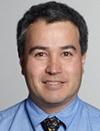NIEHS/EPA Children's Centers 2015 Webinar Series: Presenter Biosketches
 Laura Anderko, PhD, RN
Laura Anderko, PhD, RN
December: Discussion Moderator
Laura Anderko, PhD, RN, holds the Robert and Kathleen Scanlon Chair in Values Based Health Care at Georgetown University School of Nursing & Health Studies. She is a scholar and educator in the fields of epidemiology, public health and environmental health. Dr. Anderko earned her PhD in public health from the University of Illinois, an MS from Northern Illinois University, and a BSN from University of Illinois.
She previously served on the Environmental Protection Agency's federal advisory committee, the Children's Health Protection Advisory Committee (CHPAC) and currently serves on its National Environmental Justice Advisory Committee Research Workgroup. Dr. Anderko, a Robert Wood Johnson Executive Nurse Fellow, serves as a member of the Regional III Health Equity Council for HHS, chairman of the board for the national group, Alliance of Nurses for a Healthy Environment, and as a member of the advisory group for the National Center for Children's Vision and Eye Health.
In 2013, she was named a White House Champion of Change for her leadership in raising awareness about climate-related health effects. The next year, she earned the 2014 Nurse.com Nursing Excellence GEM Award for her work to advance and lead the nursing profession. In 2015, she was granted a five-year award, totaling more than $700,000, to lead a Centers for Disease Control and Prevention initiative at Georgetown focusing on children and environmental health.
 Linda S. Birnbaum, Ph.D., D.A.B.T., A.T.S.
Linda S. Birnbaum, Ph.D., D.A.B.T., A.T.S.
July: The Significance of Children’s Environmental Health Research Through Collaboration
Linda S. Birnbaum, Ph.D., became the Director of the National Institute of Environmental Health Sciences (NIEHS), one of the National Institutes of Health (NIH), and the National Toxicology Program (NTP) on January 18, 2009. In these roles Birnbaum oversees federal funding for biomedical research to discover how the environment influences human health and disease. Several advisory boards and councils provide Birnbaum and NIEHS/ NTP staff with input to accomplish this large task.
Birnbaum is the first toxicologist and the first woman to lead the NIEHS/NTP. She has spent most of her career as a federal scientist.
Birnbaum has received numerous awards and recognitions, including being elected to the Institute of Medicine of the National Academies, in October 2010, one of the highest honors in the fields of medicine and health.
 Asa Bradman, Ph.D.
Asa Bradman, Ph.D.
December: Food and Children's Environmental Health
Dr. Bradman is an environmental health scientist who focuses on exposures to pregnant women and children. He worked with Dr. Brenda Eskenazi to co-found the Center for Environmental Research and Children's Health (CERCH) at the University of California, Berkeley, in 1997 and helps direct biomonitoring and exposure studies as part of the CHAMACOS partnership in the Salinas Valley, California. He is co-Principal Investigator of the National Children's study in Kern County, CA, and also leads an initiative to improve environmental health in California child care facilities.
 Pat Breysse, PhD
Pat Breysse, PhD
July: The Significance of Children’s Environmental Health Research Through Collaboration
Pat Breysse, PhD, joined CDC in December 2014 as the Director of NCEH/ATSDR. Dr. Breysse leads CDC’s efforts to investigate the relationship between environmental factors and health. He came to CDC from the Johns Hopkins University where he served as Associate Chair for Educational Programs within the Department of Environmental Health Sciences, Program Director for the Industrial Hygiene Training Program, and co-director of the Johns Hopkins Center for Childhood Asthma in the Urban Environment.
During his 30 years at Johns Hopkins, Dr. Breysse established a long-standing expertise in environmental health as well as a strong record as a leader in the field. He has published over 200 peer-reviewed journal articles and has presented at more than 25 scientific meetings in just the past 5 years. His research has focused on the evaluation and control of chemical, biological, and physical factors that can affect health, with a particular concentration on risk and exposure assessment.
Dr. Breysse received his PhD in Environmental Health Engineering from Johns Hopkins University in 1985 and completed postdoctoral training at the British Institute for Occupational Medicine in Edinburgh, Scotland. He is also a board certified Industrial Hygienist and an editorial review board member for the Journal of Exposure Science and Environmental Epidemiology.
 Tyra Bryant-Stephens, MD
Tyra Bryant-Stephens, MD
October: Discussion Moderator
Dr. Tyra Bryant-Stephens founded the Community Asthma Prevention Program of Philadelphia at the Children's Hospital of Philadelphia in 1997. As medical director of the program, she leads a staff of 12 that includes RN Clinical and Educational Coordinators as well as lay Home Visitors.
CAPP's first project, funded by the U.S. Department of Health's Office of Minority Health, aimed to improve the health and well-being of children with asthma by providing free asthma classes in the community for parents and their children with asthma. The project also supported a new way of providing education- in the homes of children with asthma where parents learned about the types of environmental changes that could be made to improve their child’s asthma. In offering home visits and free asthma education, CAPP satisfied a strong need in the West Philadelphia community and received tremendously positive feedback from families and class participants.

Susan Buchanan, MD MPH
May: Discussion Moderator
Dr. Buchanan is Associate Professor of Environmental and Occupational Health Sciences at the University of Illinois at Chicago (UIC) School of Public Health. She directs the Great Lakes Center for Children’s Environmental Health Region 5 Pediatric Environmental Health Specialty Unit. She is board certified in Family Medicine and Occupational Medicine. Her research interests have included the occupational health of Latino day laborers and other vulnerable worker populations. Currently, she is conducting several research projects related to healthcare provider knowledge and practice regarding the health effects of pollutant exposure in pregnancy, especially methyl mercury from fish consumption.
 Gregory B. Diette, MD, MHS
Gregory B. Diette, MD, MHS
October: Respiratory Health
Gregory Diette is Professor of Medicine, Epidemiology and Environmental Health Sciences. He is a pulmonologist with a practice devoted to the care of patients with obstructive lung diseases, including asthma and chronic obstructive pulmonary disease (COPD). He has an extensive portfolio of patient-based research in asthma and COPD, supported by the National Institutes of Health and other sponsors. Dr. Diette’s current research focuses on identifying factors that cause or provoke asthma with special interest in air pollutants (particulate matter, NO2, secondhand smoke) and allergens (including mouse) that are especially problematic in inner-city homes. His research includes the effects of these pollutants and allergens on inflammation and oxidative stress. More recently, his research has been examining how dietary patterns, especially a Western-style diet, may increase susceptibility to inhalable pollutants and allergens.
 Brenda Eskenazi, Ph.D., M.A.
Brenda Eskenazi, Ph.D., M.A.
August: Brain Health
Dr. Eskenazi is the Jennifer and Brian Maxwell Professor of Maternal and Child Health and Epidemiology at the University of California, Berkeley. She is a neuropsychologist and epidemiologist whose long-standing research interest has been the effects of toxicants, including lead, solvents, environmental tobacco smoke, dioxin and pesticides, on human reproduction (both male and female) and child development. She is the Principal Investigator (PI) and Director of an National Institutes of Health/U.S. Environmental Protection Agency Center for Excellence in Children’s Environmental Health Research and its keystone project, CHAMACOS, which investigates the exposure pathways and health effects of pesticide exposure in farmworkers and their children and develops interventions to prevent future exposure. She is currently investigating associations between pubertal development and endocrine-disrupting chemicals, including flame retardants and pesticides, in children of the CHAMACOS cohort. Dr. Eskenazi was also the PI on a grant aimed at understanding the effects of U.S.-Mexico migration on childhood obesity; she conducted research on food insecurity, obesity and maternal perception of child weight.
 Ruth Etzel MD, PhD
Ruth Etzel MD, PhD
July: The Significance of Children’s Environmental Health Research Through Collaboration
Dr. Etzel has a broad background in public health, with specific training and expertise in pediatrics, preventive medicine, and children’s environmental health. After completing a residency in pediatrics, Dr. Etzel was a Robert Wood Johnson Clinical Scholar at the University of North Carolina at Chapel Hill. During 20 years as a Commissioned Officer in the US Public Health Service, Dr. Etzel served in a variety of public-sector leadership positions including: US CDC (Founding Chief of the Air Pollution and Respiratory Health Branch), US Department of Agriculture (Director of the Division of Epidemiology and Risk Assessment) and US Indian Health Service (Research Director at the Alaska Native Medical Center).
Dr. Etzel is the founding editor of Pediatric Environmental Health (a 3rd edition was published by the American Academy of Pediatrics in 2011). This influential book has helped to train thousands of doctors who care for children about how to recognize, diagnose, treat and prevent illness in children from hazards in the environment. She has worked extensively with international organizations to educate health professionals about environmental health and to build their capacity to conduct environmental investigations. From 2009 to 2012 she served as the Senior Officer for Environmental Health Research in the Department of Public Health and Environment at the World Health Organization in Geneva, Switzerland.

Pam Factor-Litvak
June: Phthalates and Personal Care Products: Should We Care?
Dr. Pam Factor-Litvak's current research interests concern the biological relationships between environmental exposures and development. She is particularly interested in in utero and early childhood exposures to heavy metals (e.g. lead, mercury), endocrine disrupting compounds (e.g. PCBs, organohalogen pesticides), and developmental and reproductive outcomes in late childhood, adolescence and adulthood. Most of Dr. Factor-Litvak's research utilizes birth cohorts, or groups of individuals born at particular times and in particular places. An example of this work concerns the Yugoslavia Study of Environmental Lead, Pregnancy Outcomes and Child Development, a prospective cohort study of mother-child pairs, tracking the adverse association between lead exposure and IQ. A second cohort study of the National Collaborative Perinatal Project is tracing those adults in the cohort to ascertain specific health outcomes, in particular, if prenatal exposure to endocrine disrupting compounds is associated with persistent neurobehavioral problems and reproductive disorders in males. Dr. Factor-Litvak is also following a newly formed birth cohort in Norway, and exploring early screening and diagnostic instruments for autism and related disorders. She has recently completed two studies initiated due to public concerns, one, a study of the possible associations between mercury derived from dental restorations (silver-mercury fillings) and neuropsychological, neurological and psychiatric symptoms in adults, and second, an ecologic study of the relationships between residential proximity to hazardous waste sites and school district based special education classifications of autism. Dr. Factor-Litvak has served on numerous NIH review committees and on a World Health Organization expert panel on endocrine disrupting chemicals.

Susan Fisher
May: The Role of the Placenta in Children’s Development
Dr. Susan Fisher is a Professor in the Departments of Obstetrics, Gynecology and Reproductive Sciences, and Anatomy at the UCSF School of Medicine, where she works at the Center for Reproductive Sciences and the Eli & Edythe Broad Center of Regeneration Medicine and Stem Cell Research.
She and her group have developed approaches for studying the human placenta that have advanced our understanding of how this transient organ carries out its many remarkable functions during normal pregnancy. In turn, this work has clarified the placental defects that are associated with common pregnancy complications, including preeclampsia. Her group also studies the earliest stages of human development. They also use mass spectrometry approaches to decipher elements of carbohydrate structures that bacteria use as receptors, and to compile proteomes in pursuit of disease biomarkers, including cancer and environmental exposures.
Dr. Fisher received her doctoral degree from the University of Kentucky where she also completed a postdoctoral fellowship. An AAAS fellowship participant, she has published over 200 peer-reviewed publications and is a recipient of the UCSF Academic Senate Distinction in Teaching Award and the Graduate Association Outstanding Faculty Mentorship Award.

Jodi A. Flaws, Ph.D.
June: Effects of Phthalates on the Female Reproductive System
Jodi A. Flaws is a Professor in Comparative Biosciences at the University of Illinois-Urbana/Champaign. She received a B.S. in Biology from St. Xavier University, a M.S. in Biology from Loyola University of Chicago, and a Ph.D. in Physiology from the University of Arizona. Following completion of the Ph.D. degree, Dr. Flaws performed post-doctoral research on genes and environmental chemicals that regulate female reproductive function. Following post-doctoral training, she accepted an Assistant Professor position at the University of Maryland and subsequently was promoted to Associate Professor. In 2006, Dr. Flaws accepted a position as Professor of Comparative Biosciences at the University of Illinois-Urbana/Champaign.
Dr. Flaws’ research program is mainly focused on determining the mechanisms by which environmental chemicals such as pesticides and plasticizers affect the development and function of the ovary. Her research is funded by grants from the National Institutes of Health and Environmental Protection Agency. She has published over 160 peer-reviewed papers that have involved extensive participation and authorship by 16 graduate students, 6 post-doctoral fellows, and 10 undergraduate students. She is the recipient of the Department of Epidemiology and Preventive Medicine, University of Maryland Student Mentoring Award, the Patricia Sokolove Outstanding Mentor Award, the Dr. Gordon and Mrs. Helen Kruger Research Excellence Award, the Pfizer Animal Health Award for Research Excellence, and the University Scholar Award.
 Bernard Fuemmeler, PhD, MPH
Bernard Fuemmeler, PhD, MPH
November: Discussion Moderator
Dr. Fuemmeler is Associate Professor, Community and Family Medicine, Psychology and Neuroscience, and Psychiatry and Behavioral Sciences. Dr. Fuemmeler is a licensed pediatric clinical psychologist who has additional expertise in developmental epidemiology. Broadly, his work focuses on the intersection between childhood neurodevelopment capacities (e.g., executive function, self-regulation, ADHD symptoms) and subsequent health and lifestyle behaviors. Related to this, he is interested in identifying prenatal exposures that compromise neurodevelopmental capacities central to executive functions and ADHD. He directs Project 1 of the Duke University NICHES, Children’s Environmental Health and Disease Prevention Research Center which focuses on prenatal and postnatal tobacco smoke exposure, neurodevelopment and potential epigenetic mediating factors.
 Robert Bruce Gunier
Robert Bruce Gunier
August: Brain Health
Dr. Gunier is an assistant researcher at the Center for Environmental Research and Children's Health at the University of California, Berkeley School of Public Health. His research focuses on estimating pesticide and other environmental exposures using geographic information science combined with environmental and biological samples. Dr. Gunier has collaborated on environmental epidemiological studies of neurodevelopment, respiratory function, autism and childhood cancer.
 Julie B. Herbstman
Julie B. Herbstman
April: Epigenetics
Julie B. Herbstman, assistant professor in the Department of Environmental Health Sciences, has been a postdoctoral research scientist in the Department, working at the Columbia Center for Children's Environmental Health. Julie's research focuses on the impact of prenatal exposures to environmental pollutants on child growth and development and she has also been involved in research exploring the long-term environmental health impact of exposure to pollutants from the collapse of the World Trade Center on 9/11. Most recently, she has been collaborating on the Columbia Children's Center's work involving the integration of epigenetic biomarkers between prenatal exposures and disease risk. Julie received her undergraduate degree from Tufts University (1998), her Master's in Science (Sc.M, 2002) and PhD from Johns Hopkins University.
 Anne G. Hoen, PhD
Anne G. Hoen, PhD
December: Food and Children's Environmental Health
Dr. Hoen's research aims to develop new approaches to understanding the complex interactions between human health, commensal and pathogenic microorganisms, and the environmental determinants of disease risk. Her current research is focused on the establishment of the human microbiome in infancy in light of common early life exposures and health outcomes in childhood. Specific projects include studies of network-based methods to capture the evolving interactions between the microorganisms that form the intestinal microbiome in infants and young children; the environmental drivers of infant intestinal microbiome development; associations between patterns of infant intestinal microbiome establishment and health outcomes in children; and the role of the intestinal and airway microbiomes in the clinical progression of cystic fibrosis. Other research interests include identifying the determinants of infectious disease risk, emergence, temporal dynamics and geographic spread and the application of microbial genomics to infectious disease outbreak investigation.
 Dr. James H. Johnson, Jr.
Dr. James H. Johnson, Jr.
July: The Significance of Children’s Environmental Health Research Through Collaboration
Dr. James H. Johnson, Jr., is the Director of the National Center for Environmental Research (NCER) in the U.S. Environmental Protection Agency’s (EPA) Office of Research and Development (ORD). In this role, Dr. Johnson continues a life-long career dedicated to sustaining and advancing scientific research and education initiatives supporting environmental protection, quality-of-life programs and policies, and environmental workforce development. Dr. Johnson has served on numerous committees and boards for the National Academies, EPA and academic institutions. He is a member of the Anne Arundel Community College (MD) Board of Trustees, and is Professor Emeritus of Civil Engineering and Dean Emeritus of the College of Engineering, Architecture and Computer Sciences at Howard University. Dr. Johnson has a B.S. in Civil Engineering from Howard University and an M.S. from the University of Illinois. He earned his Ph.D. in Applied Sciences from the University of Delaware.
 Susan A. Korrick, M.D.
Susan A. Korrick, M.D.
February: Impact of Adolescent Exposure to Phenols and Phthalates on Neurobehavior
Dr. Korrick is an Assistant Professor at Harvard Medical School and Harvard School of Public Health with an appointment as an Associate Physician at Brigham and Women's Hospital. She is an investigator with the EPA/NIEHS Children’s Centers at Dartmouth College and the University of Illinois. Her research focuses on the developmental and neurocognitive toxicities of environmental contaminants including metals, organochlorine pesticides, and polychlorinated biphenyls as well as short half-life compounds such phenols and phthalates. The core of her research is the development (as PI) of the New Bedford Cohort (NBC), an ongoing birth cohort study results of which have expanded understanding of the neurobehavioral impacts of a variety of early life metal (e.g., methylmercury) and organochlorine exposures. More recently, she has extended her research to include collaborative studies of outcomes based risk assessment and methods development for analyzing exposure mixtures in the NBC. She has segued her experience with birth cohort studies into close collaborative efforts with other longitudinal studies, most notably two pregnancy cohorts developed via NIEHS/EPA Children's Centers at the University of Illinois and Dartmouth Medical School.
 Bruce Lanphear, MD, MPH
Bruce Lanphear, MD, MPH
November: Historical Perspectives and Research Updates from Previously Funded Children's Centers
Bruce P. Lanphear, MD, MPH, is a co-investigator of the CHIP Study. He is a professor of children’s environmental health, faculty of health sciences at Simon Fraser University and adjunct professor of pediatrics at Cincinnati Children’s Hospital Medical Center. He has extensive experience conducting community-based trials, including lead poisoning prevention, epidemiology of asthma, prevention of exposure to tobacco smoke and measurement of lead and allergens in housing. He has been the principal investigator for the HOME Study, upon which this project is based. Dr. Lanphear is well-versed in environmental sampling, form and protocol development, reliability of instruments, data management and subject retention.
 Pamela J. Lein, Ph.D.
Pamela J. Lein, Ph.D.
September: Interdisciplinary Approaches to Neurodevelopment
Dr. Lein is a developmental neurobiologist with research interested in the molecular and cellular mechanisms by which environmental stressors modulate neurodevelopment. Her current research focuses on: (1) interactions between genetic alterations in ryanodine receptors and environmental factors that modulate calcium signaling that alter normal patterns of neuronal connectivity in the developing brain; (2) novel biomarkers and medical countermeasures for organophosphorus anticholinesterase-induced neurotoxicity; and (3) the influence of neuroimmune interactions on neuronal morphogenesis and synapse formation. The ultimate goal this research is to identify environmental stressors that can be readily controlled to decrease the incidence and/or severity of neurodevelopmental disorders. Dr. Lein has developed a well-funded, collaborative and interdisciplinary research program with colleagues across the university, as well as nationally and internationally. She is the Chair of the Graduate Group in Pharmacology and Toxicology at UC Davis, and a member of the MIND Institute.
 Andrew H. Liu, MD
Andrew H. Liu, MD
October: Respiratory Health
Dr. Andy Liu is a Professor of Pediatric Allergy & Immunology at National Jewish Health and the University of Colorado School of Medicine. His clinical and laboratory research program investigates the environmental determinants of airways inflammation and disease in children. His work targets asthma severity and exacerbations, with a longstanding interest in early intervention for disease modification and prevention. His research is supported by the U.S. National Institutes of Health (NIH) and the Environmental Protection Agency (EPA). He leads a project in the Denver-based NIH NIEHS/EPA STAR program-sponsored Children’s Environmental Health Center (CEHC) in Environmental Determinants of Respiratory Disease in Children, and specifically investigating bacterial endotoxin exposure and asthma in children. He is also the Principal Investigator for the Denver site of the NIH NIAID-sponsored Inner City Asthma Consortium. U.S. inner-city children experience a disproportionate burden of difficult, problematic asthma with poor control, severe exacerbations, and associated risk for morbidity and mortality. Andy has a particular interest in interventions to improve asthma outcomes for these vulnerable children.
 Jennifer Lowry, MD
Jennifer Lowry, MD
September: Interdisciplinary Approaches to Neurodevelopment
Jennifer Lowry attended medical school at the University of South Dakota School of Medicine. She completed a Pediatric Residency and Clinical Pharmacology/Medical Toxicology Fellowship at the Children’s Mercy Hospital in Kansas City, MO. She is board certified in Pediatrics and Medical Toxicology. She spent 5 years as the Medical Director to the Kansas Poison Control Center. She is the Chief for the Section of Clinical Toxicology at Children’s Mercy Hospital and an Associate Professor in Pediatrics at the University of Missouri.
She is the Director for the Mid-America Pediatric Environmental Health Specialty Unit for EPA Region 7 and a medical toxicology liaison to the Region 7 Agency for Toxic Substances and Disease Registry. She is a current member of the Children’s Health Protection Advisory Committee for the Environmental Protection Agency and the Executive Committee for the American Academy of Pediatrics’ Council on Environmental Health.

Carmen J Marsit, Ph.D.
April: Epigenetics
May: The Role of the Placenta in Children’s Development
The broad goal of Dr. Marsit’s research program is to investigate gene environment interactions and their individual and combined impact on human disease, with a particular focus on the impact of the environment on epigenetic regulation of the genome. The laboratory studies alterations to epigenetic marks, which may be responsible, in a significant part, for cancer, adverse pregnancy outcomes, and common and rare diseases of childhood including behavioral disorders. This work is accomplished by taking a novel interdisciplinary approach to understanding the pathogenesis of human disease, utilizing the power of epidemiology and population-based research to study the effects of the environment on multiple facets of epigenetic regulation while examining mechanistic questions in controlled in-vitro experiments. The focus of Dr. Marsit’s research has been on two distinct, yet highly related biologic processes, that of environmental carcinogenesis and that of human development. In those settings, his laboratory examines DNA methylation and miRNA expression as key epigenetic mechanisms of interest. This research aims to provide a sound scientific basis for this emerging paradigm that is taking shape on the heels of the realization that there are fetal origins to many adult diseases.
This research aims to provide a sound molecular basis for the emerging paradigm that there are fetal origins to much of adult health and disease. Dr. Marsit's laboratory utilizes modern molecular biology and genetics applied in the setting of epidemiologic studies to study the effects of the environment on multiple facets of epigenetic regulation, and thereby is creating a novel interdisciplinary approach to understanding the pathogenesis of human disease. Paramount to meeting these objectives is creating a collaborative and multidisciplinary team of clinicians, epidemiologists, biologists, and statisticians who, by working together, are committed to combining efforts to reach these goals.

John Meeker
May: The Role of the Placenta in Children’s Development
Dr. John Meeker is Associate Professor of Environmental Health Sciences and Associate Dean for Research at the University of Michigan School of Public Health. He holds a B.S. in Industrial Technology from Iowa State University, as well as M.S. and Doctor of Science (Sc.D.) degrees in Environmental Science & Engineering and Exposure, Epidemiology & Risk, respectively, from Harvard University, where he also completed a postdoctoral fellowship in Environmental and Reproductive Epidemiology. He is a Certified Industrial Hygienist (CIH). Dr. Meeker's work is wide-ranging, and focuses on defining sources, magnitudes and consequences of human exposure to environmental and occupational contaminants, as well as identifying and evaluating strategies to control harmful exposures. Much of his current research involves human exposure science and reproductive and developmental epidemiology studies of known or suspected endocrine disrupting chemicals, such as phthalates, BPA, pesticides, flame retardants, and others. Dr. Meeker is principal investigator on numerous large-scale research studies, is Associate Editor of Environmental Health Perspectives, and has served on numerous peer-review and advisory panels for EPA, NIH, and others in recent years. Dr. Meeker serves as an investigator of the Children’s Environmental Health and Disease Prevention Center at the University of Michigan: “Lifecourse Exposures & Diet: Epigenetics, Maturation & Metabolic Syndrome.”
 Susan K. Murphy, Ph.D.
Susan K. Murphy, Ph.D.
August: Brain Health
Dr. Murphy is an Associate Professor in the Department of Obstetrics and Gynecology, Division of Gynecologic Oncology, at Duke University Medical Center where her laboratory is focused on the developmental origins of disease as well as on the epigenetics and novel therapeutic approaches in gynecologic malignancies. She leads the Duke Epigenetics Research Laboratory and is Director of the NICHES Children's Environmental Health and Disease Prevention Research Center, Co-Director of the Duke Epigenetics and Epigenomics Program and Co-Principal Investigator leading the molecular biology efforts of the Duke-based Newborn Epigenetics STudy, or NEST. NEST is a longitudinal birth cohort study from which new insights have come regarding the in utero environment's effects on the epigenetic regulatory regions of imprinted genes. Her long-term research goals are to identify and utilize epigenetic changes that occur as a result of early life exposures to improve diagnostics and to develop new intervention and prevention strategies based on these findings.
 Kari Nadeau, M.D., Ph.D.
Kari Nadeau, M.D., Ph.D.
October: Respiratory Health
Dr. Kari Nadeau is Associate Professor of Pediatrics—Immunology and Allergy, and Associate Professor of Otolaryngology at Stanford University School of Medicine. She received her Bachelor of Science degree from Haverford College, an M.D. degree from Harvard Medical School and her Ph.D. from Harvard University in Biochemistry. The goal of the research in Dr. Nadeau's laboratory at Stanford is to investigate the role of ambient air exposure on the developing immune system in children, with a focus on understanding the interaction between environment and the immune system by studying detailed mechanistic studies in T cells. Dr. Nadeau has a broad background in immunology, with specific training and expertise in key research areas on T cells. She is working with Drs. Katharine Hammond and Ira Tager at the University of California, Berkeley, to link mechanistic immunology studies with epidemiological outcomes of ambient air pollution exposure. Dr. Nadeau has published more than 71 peer-reviewed papers, many of which focus on T cells and health outcomes.

Tom Neltner
June: Discussion Moderator
Thomas G. Neltner, HHS, CHMM, is a Chemicals Policy Director focused on food safety. He is a chemical engineer and attorney with experience in chemical safety issues. His career has focused on chemical safety whether in the workplace, the environment, the home, consumer products or food. He has worked in chemical, food additive, pesticide and pharmaceutical manufacturing as well as state government and public interest advocacy with stints as an adjunct professor at Indiana University through many of those years. Mr. Neltner is also a member of the Children’s Health Protection Advisory Committee (CHPAC), a group of external researchers, academicians, health care providers, environmentalists, state and tribal government employees, and members of the public who advise EPA on regulations, research, and communications related to children's health.
 Vasantha Padmanabhan, M.S., Ph.D.
Vasantha Padmanabhan, M.S., Ph.D.
February: Discussion Moderator
Vasantha Padmanabhan, M.S., Ph.D., is professor of pediatrics, obstetrics, gynecology, molecular and integrative physiology, and environmental health sciences. She is the director of pediatric endocrine research at the University of Michigan, and is the co-PI for the University of Michigan Children’s Environmental Health and Disease Prevention Center on the theme, Lifecourse exposures & diet: Epigenetics, maturation & metabolic syndrome. Dr. Padmanabhan's research centers on understanding the fetal origin of pubertal and adult reproductive and metabolic disorders. Specifically her laboratory focuses on the impact of maternal exposure to native steroids (testosterone, estradiol), and environmental pollutants such as bisphenol-A in altering developmental trajectory of fetus and programming adult diseases. She was instrumental in developing the sheep model of polycystic ovarian syndrome phenotype, and is principal investigator of a program grant from the Eunice Kennedy Shriver National Institute of Child Health and Human Development, directed toward identifying prevention and treatment strategies for overcoming reproductive and metabolic dysfunctions.

Jerome Paulson, M.D.
July: Discussion Moderator
Jerome A. Paulson, MD, FAAP, Director is Professor of Pediatrics at the George Washington University School of Medicine & Health Sciences and Professor of Environmental & Occupational Health at the GW School of Public Health & Health Services. He is the Medical Director for National & Global Affairs of the Children’s Health Advocacy Institute at the Children’s National Medical Center.
Dr. Paulson serves as chairperson for the American Academy of Pediatrics Council on Environmental Health and serves on the Children’s Health Protection Advisory Committee for the US Environmental Protection Agency. In October 2004 he was a Dozor Visiting Professor at Ben Gurion University in Beer Sheva, Israel. He lectured there and throughout Israel on children’s environmental health. He was a recipient of a Soros Advocacy Fellowship for Physicians from the Open Society Institute and worked with the Children’s Environmental Health Network, and has also served as a special assistant to the director of the National Center on Environmental Health of the CDC working on children’s environmental health issues. He is the editor of the October, 2001 and the February and April 2007 editions of Pediatric Clinics of North America on children’s environmental health. He has served on numerous boards and committees related to children’s environmental health.
 Bradley S. Peterson, MD
Bradley S. Peterson, MD
September: Interdisciplinary Approaches to Neurodevelopment
Bradley S. Peterson, MD, the inaugural director of the Institute for the Developing Mind, joined Children’s Hospital Los Angeles in July 2014 after 13 years at Columbia University, where he served as the director of the Center for Developmental Neuropsychiatry. Before that, he spent 12 years at Yale University, where he served as Director of Neuroimaging at the Yale Child Study Center.
Peterson’s vast experience as a scientist, physician, teacher and mentor provides the Institute with the transformative leadership necessary to establish a comprehensive program of interdisciplinary research, education, training and clinical services for childhood neurodevelopmental problems at Children’s Hospital Los Angeles. His research has used brain-imaging technologies to understand the origins of neurodevelopmental disorders, and to map the complex pathways between the genetic and environmental influences that can trigger their onset or progression. A physician in the Division of Research on Children, Youth and Families within the Department of Pediatrics at CHLA, Peterson also holds a secondary appointment in the Department of Psychiatry at the Keck School of Medicine of the University of Southern California (USC), where he is director of the Division of Child and Adolescent Psychiatry.
 Karen E. Peterson, Sc.D.
Karen E. Peterson, Sc.D.
February: Metals, EDCs and Biomarkers of Metabolic Syndrome Risk in Adolescence
December: Food and Children's Environmental Health
Dr. Peterson is Professor and Director of the Human Nutrition Program, Department of Environmental Health Sciences, University of Michigan (U-M) School of Public Health. She is the contact PI for the U-M Children’s Environmental Health and Disease Prevention Center on the theme: “Lifecourse exposures & diet: Epigenetics, maturation & metabolic syndrome,” serves as Associate Director of the NIH-funded Michigan Nutrition and Obesity Research Center (MNORC) and is founding Director of the U-M Momentum Center: Driving Discovery to End Child Obesity, a center whose mission is to create novel, trans-disciplinary solutions to child obesity. Dr. Peterson’s research focuses on understanding the influence of adverse exposures to metals and endocrine-disrupting chemicals on physical growth, maturation and markers of metabolic homeostasis during sensitive developmental periods. She also studies the potential role that dietary quality and lifestyle behaviors may play in mediating the relationships between environmental exposures and child health.
 Virginia Rauh, Sc.D.
Virginia Rauh, Sc.D.
September: Interdisciplinary Approaches to Neurodevelopment
Dr. Rauh is Professor of Population and Family Health at the Mailman School of Public Health, Columbia University, and Deputy Director of the Columbia Center for Children's Environmental Health. Her work focuses on the adverse impact of exposure to air pollutants, including second hand smoke and pesticides on pregnancy and child health, and the susceptibility of disadvantaged populations to environmental hazards. Dr. Rauh is a perinatal epidemiologist, whose expertise is in the area of low birth weight and preterm delivery, particularly with respect to socioeconomically disadvantaged and minority populations. She has been principal investigator on numerous major research projects, including studies of the impact of organophosphorus insecticides and secondhand smoke on child neurodevelopment and structural brain abnormalities (MRI), a randomized intervention trial for low birth weight infants, a multi-site study of lifestyles in pregnancy, a study of developmental outcomes of children born to inner-city adolescent mothers, a multi-level analysis of the impact of Head Start on New York City school children, a study of the effects of ambient air pollutants on pregnant women and their children, and a study of links between race, stressors, and preterm birth. She has worked with other Columbia faculty to study the effects of the World Trade Center disaster on pregnant women and newborns. Dr. Rauh is currently principal investigator for the Manhattan Site and co-investigator for the Queens Vanguard Site of the National Children’s Study. Dr. Rauh serves on numerous national committees, including advisory groups at NIEHS, NICHD, and the Scientific Advisory Board for the Environmental Protection Agency.
 John M. Rogers, Ph.D.
John M. Rogers, Ph.D.
April: Discussion Moderator
Dr. John Rogers is the Director of the Toxicity Assessment Division, National Health and Environmental Effects Research Laboratory, U.S. Environmental Protection Agency, Research Triangle Park, NC. Prior to that he served as Chief of the Developmental Biology Branch, and he has been with EPA for 30 years. Dr. Rogers is also a graduate faculty affiliate in the Curriculum in Toxicology, University of North Carolina, Chapel Hill, and an Adjunct Professor at North Carolina State University College of Veterinary Medicine. He received his Ph.D. in Biology from the University of Miami (FL), and was a National Eye Institute postdoctoral fellow at the University of California, Davis. Dr. Rogers’s research addresses mechanisms of abnormal development, including maternally-mediated developmental toxicity, maternal nutrition, and the developmental origins of health and disease. Dr. Rogers is a past president of the Teratology Society, a member of the Society of Toxicology (SOT), past president of the Reproductive and Developmental Toxicity Specialty Section of SOT, and a member of the International Society for Developmental Origins of Health and Disease. Dr Rogers has published over 125 peer-reviewed papers, invited reviews and book chapters, and has edited 2 books. Dr. Rogers has received 13 EPA Scientific and Technical Achievement Awards for his published works and 3 Bronze Medals for service to EPA. He has two sons and a step-daughter, and lives with his wife in Raleigh.
 I. Leslie Rubin, M.D.
I. Leslie Rubin, M.D.
August: Discussion Moderator
I. Leslie Rubin, MD, is President and Founder of the Institute for the Study of Disadvantage and Disability, Research Associate Professor in the Department of Pediatrics at Morehouse School of Medicine in Atlanta, Georgia, Medical Director of TEAM Centers in Chattanooga Tennessee and Developmental Pediatric Specialists in Atlanta, and Co-director of the Southeast Pediatric Environmental Health Unit in the Department of Pediatrics at Emory University, Atlanta, Georgia.
Dr. Rubin is originally from South Africa where he trained in Pediatrics and came to the USA in 1976. He was initially at the Hospitals of the Case Western Reserve University in Cleveland Ohio and then he moved to The Children’s Hospital in Boston and the Harvard Medical School where he spent 14 years. In 1994 he moved to Atlanta, Georgia as Director of Developmental Pediatrics at Emory University. Since 1998 he has been involved with the Southeast Pediatric Environmental Health Specialty Unit at Emory. In 1998 he also became involved with the Team Centers in Chattanooga Tennessee.
He currently provides clinical services, teaches at Emory and Morehouse Schools of Medicine and is on a number of local, regional, national and international committees and projects that address the needs of children and adults with Developmental Disabilities
 Andrew G. Rundle, Dr.P.H.
Andrew G. Rundle, Dr.P.H.
February: Prenatal Exposures to Polycyclic Aromatic Hydrocarbons (PAH) and Childhood BMI Trajectories
Dr. Andrew Rundle is Associate Professor of Epidemiology at the Mailman School of Public Health at Columbia University and co-director of the Mailman School's Obesity Prevention Initiative. His research focuses on neighborhood level and environmental causes of obesity and ways in which sedentary lifestyles and obesity effect cancer risk and survival. Dr. Rundle leads the childhood obesity research efforts of the Columbia Center for Children's Environmental Health's and co-directs the Built Environmental and Health Research Group.

Sheela Sathyanarayana, MPH, MD
June: Phthalate Exposures through Diet: Lessons Learned
Sheela Sathyanarayana, MD MPH, is an Assistant Professor of Pediatrics and Adjunct Assistant Professor within the Department of Environmental and Occupational Health Sciences at the University of Washington and an Investigator within the Center for Child Health, Behavior and Development at the Seattle Children's Research Institute. She is a pediatric environmental health specialist. Her research interests focus on exposures to endocrine disrupting chemicals including phthalates and bisphenol A and their impact on reproductive development. Currently, Dr. Sathyanarayana is the center director and clinical director for The Infant Development and Environment Study (TIDES) which is a multi-center cohort study of phthalate exposures in pregnancy and health outcomes in children. She is currently the co-chair for the US Environmental Protection Agency's Children's Health Protection Advisory Committee. Dr. Sathyanarayana performs environmental health consults for health care professionals, governmental entities, and individual families related to environmental exposures and children's health. She also practices general pediatrics at Harborview Medical Center in Seattle, Washington.
 Susan L. Schantz, PhD
Susan L. Schantz, PhD
September: Interdisciplinary Approaches to Neurodevelopment
Dr. Susan Schantz is Professor of Environmental Toxicology in the Department of Comparative Biosciences at the University of Illinois in Urbana-Champaign. She has chaired the Interdisciplinary Environmental Toxicology Program since 1996, and she directs the Children’s Environmental Health Research Center funded jointly by NIEHS and the USEPA and an Environmental Toxicology Training Grant funded by NIEHS. She is associate director of a Botanical Research Center funded by NCCAM, ODS and NCI. Her research focuses on understanding the nervous system effects of several widespread environmental contaminants including PCBs, PBDEs, phthalates and bisphenol A, and includes epidemiological studies of exposed human populations as well as laboratory studies in animal models. Recently, with funding from NIA and NCCAM, she has initiated another line of research investigating the impact of estrogens including soy isoflavones and other botanical estrogens on cognitive function during aging.
 Heather Volk, PhD, MPH
Heather Volk, PhD, MPH
August: Brain Health
Dr. Heather Volk is Assistant Professor of Research appointed in the Division of Environmental Health in the Department of Preventive Medicine and in the Zilkha Neurogenetic Institute at the Keck School of Medicine at the University of Southern California and in the Community, Health Outcomes and Intervention Research Program in the Saban Research Institute at Children’s Hospital Los Angeles. Her research focuses on the genetic and environmental epidemiology of autism and other neurodevelopmental disorders as well as more generally on the role of gene-environment interaction in complex disease. Dr. Volk is a graduate of the University Notre Dame and received a Masters in Public Health, concentrating in Epidemiology and Biostatistics, from Boston University and a doctorate in Public Health Studies, concentrating in Epidemiology, from St. Louis University. She completed a postdoctoral fellowship in environmental genomics at the University of Southern California.
 Joseph Wiemels, Ph.D.
Joseph Wiemels, Ph.D.
April: Epigenetics
Dr. Joseph Wiemels is a professor of epidemiology at University of California, San Francisco. After completing his undergraduate degree in biology at Kenyon College, Ohio, he served in the Peace Corps teaching science subjects in the South Pacific. Dr. Wiemels received a Ph.D. in Environmental Health Sciences/Toxicology at the University of California, Berkeley, with minors in epidemiology and nucleic acid chemistry, in 1997. Dr. Wiemels joined a large pediatric leukemia epidemiology study as a postdoc in London, UK, before returning to California and taking up a position at UCSF in 2000.
Dr. Wiemels is committed to studying the epidemiology of childhood cancers with a focus on biology and natural history of the diseases. He has worked on tracing back the genetic and epigenetic origins of cancer, particularly childhood leukemia, and exploring the relationship of the host immune system and cancer in an epidemiologic fashion. His goal is to understand the biological mediators between genetic and environmental risk factors and disease, and how the immune system can detect and interact with cancers. Current projects include a genome wide association study of childhood leukemia and proposed GWAS in pediatric glioma, a large scale environmental risk factor and neonatal DNA methylation study, investigations into the role of autoantibodies in brain and other cancers, and the mechanisms behind allergies and Varicella virus-associations in brain cancers. Continued progress on all fronts will only be made through a combination of the best biology and epidemiology, and the shared worldwide resources and collaboration between investigators with disparate fields of interest.
 Mary Wolff
Mary Wolff
November: Historical Perspectives and Research Updates from Previously Funded Children's Centers
Mary Wolff joined Mount Sinai to work with Dr. Irving J. Selikoff in 1974 as a post-doctoral fellow in Environmental Medicine, and since that time she has been a faculty member in the Medical School. Her research interests center around application of biological markers to determine exposures of humans to chemicals that occur in the environment. In addition to exogenous agents, environmental exposures are considered in the context of diet, lifestyle and individual susceptibility factors, and their relationship to cancer risk, to reproductive dysfunction and to developmental disorders. She has been involved in numerous studies of both occupational and ambient environmental exposures to polycyclic aromatic hydrocarbons, organochlorine pesticides and PCBs (polychlorinated biphenyls). She has also investigated lead poisoning, dermal exposures, and chemicals in breast milk. She has collaborated in several studies of breast cancer risk associated with environmental exposures and the genetic determinants of these risks. Around Y2K, she shifted emphasis to newly identified exposures that may be most relevant to the twenty-first century. Her research in breast cancer addressed ethnic variability in exposures and how these differences may be related to disease risk, which led her to investigate environmental exposures in children in relation to somatic, neurologic, and reproductive development and to racial/ethnic differences in exposure and disease.
Dr. Wolff is past Director of the EPA/NIEHS Center for Children's Environmental Health and Disease Prevention Research, an NIH/EPA-funded multidisciplinary research program now in its eighth year. In addition, her group is concluding a 12-year investigation environmental and genetic risks for early puberty in Black and Latina children, research that is intended to elucidate risk for breast cancer and other chronic diseases. She has also directed research cohorts of children followed since before birth, to examine risks associated with prenatal exposures, particularly changes in neurobehavior related to exposure. These include a multiethnic cohort of pregnant women who delivered at Mount Sinai between 1998 and 2002 and another cohort of mothers who were exposed while pregnant to chemicals and dust after the disaster at the World Trade Center.
 Robert O. Wright, MD, MPH
Robert O. Wright, MD, MPH
November: Historical Perspectives and Research Updates from Previously Funded Children's Centers
Robert Wright, MD, MPH, has joined the Mount Sinai School of Medicine as Professor of Preventive Medicine and Pediatrics, Director of the Division of Environmental Health, Deputy Director of the Children's Environmental Health Center, and member of the Child Health and Development Institute, where he will establish a new molecular-exposure biology laboratory. This lab will be a Mount Sinai resource for measuring novel biomarkers that arise from environmental chemicals and for modeling the geospatial distribution of air and water-borne pollutants.
Dr. Wright's research focuses on genetic/epigenetic susceptibility to chemicals, and child growth and development. Prior to joining Mount Sinai, Dr. Wright was the overall principal investigator of the Harvard Superfund Research Program, a multi-project grant dedicated to studying metal exposure, genetics and neurodevelopment. He is also the principal investigator of the ELEMENT cohort (Early Life Exposures in Mexico and Environmental NeuroToxicology), an ongoing National Institutes of Health (NIH)-funded longitudinal study of 1,000 children in Mexico City.
Dr. Wright received his MD from the University of Michigan, completed residency in Pediatrics at Northwestern University, and fellowship training in Emergency Medicine at Hasbro Children's Hospital; Toxicology at Boston Children's Hospital; Environmental Epidemiology at the Harvard School of Public Health; and Genetic Epidemiology at the Channing Laboratory. He has co-authored more than 100 research papers and is a standing member of the Environmental Protection Agency Scientific Advisory Board, an NIH study section on Neurology, Aging, Musculoskeletal Epidemiology, and the Council of the Society for Pediatric Research.
